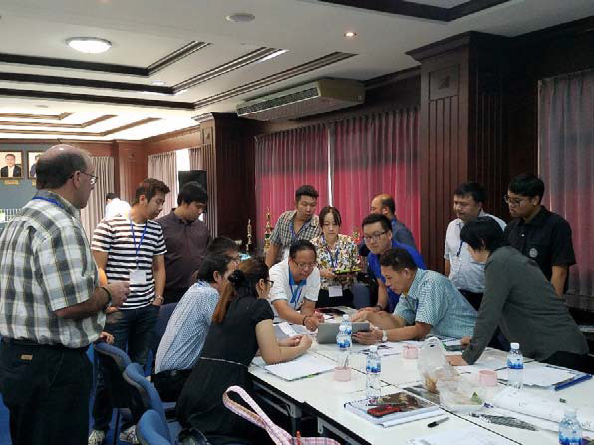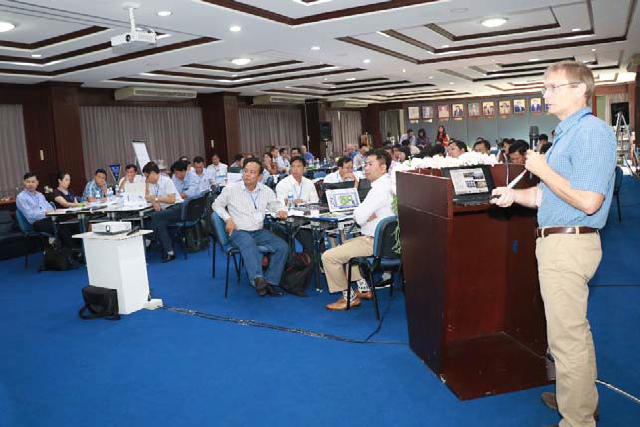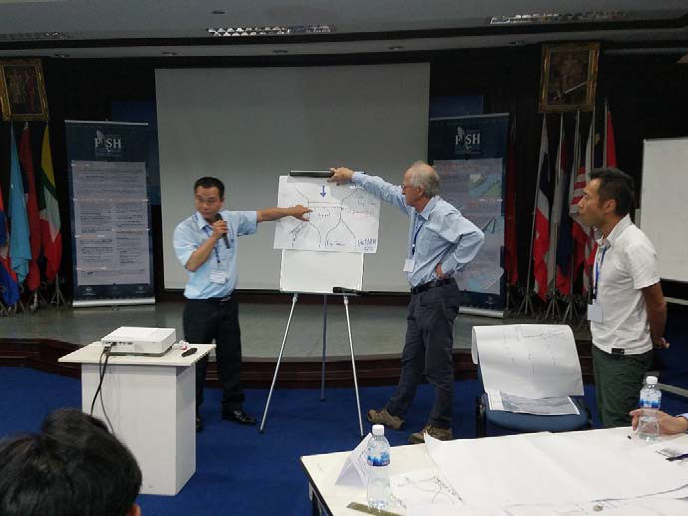
From The Crawford Fund
There is substantial interest around the world in the effectiveness of ‘fishways’ or fish passages as channels, like a set of stairs, to enable fish to move more freely where there are obstructions such as weirs and flood control gates. This generates win-win outcomes where healthy fisheries can co-exist with irrigation expansion, particularly in rice growing countries. With support provided by ACIAR, Crawford Fund, USAID and Mekong River Commission (MRC), a Fish Passage Master Class was held in Thailand in late 2018. The Master Class was led by Dr. Lee Baumgartner from the Institute for Land Water and Society, Charles Sturt University and five other Australian instructors who came from the University of South Australia, Charles Sturt University and Australasian Fish Passage Services, and five instructors from the US Department of the Interior.

The Master Class had an extensive reach, with 52 practitioners from fisheries and irrigation ministries from Cambodia, Lao PDR, Myanmar, Thailand, and Vietnam attending, along with representatives from Southeast Asian Fisheries Development Center SEAFDEC, the MRC Secretariat, and the National Mekong Committees from each nation. The goal of the Master Class was to provide engineers and fishery managers throughout these five Lower Mekong nations with the skills needed to design and construct effective fish passages for upstream migrating fish at irrigation infrastructure. The second goal was to build connections between irrigation and fisheries practitioners, to better utilise both skill-sets in fish passage design and construction. Trainers and participants reported that the Master Class was successful in achieving its goal of building baseline capacity in numerous agencies to design and construct irrigation facility fish passes. Read more at The Crawford Fund.

As part of the workshop, each national team presented a case study of a previously selected site in their nation where fish passage was needed; this site was used in round-table design sessions throughout the week. The workshop featured sessions on the fish passage design process, including essential data for design, fishway entrance and exit design, and case studies of good and bad entrances and exits. The national teams developed their fishway designs and discussed fishway research techniques and monitoring program design. The final day of the workshop covered the fishway construction process, including best practices, construction inspection, and interacting with contractors. For more information, see the workshop final report.